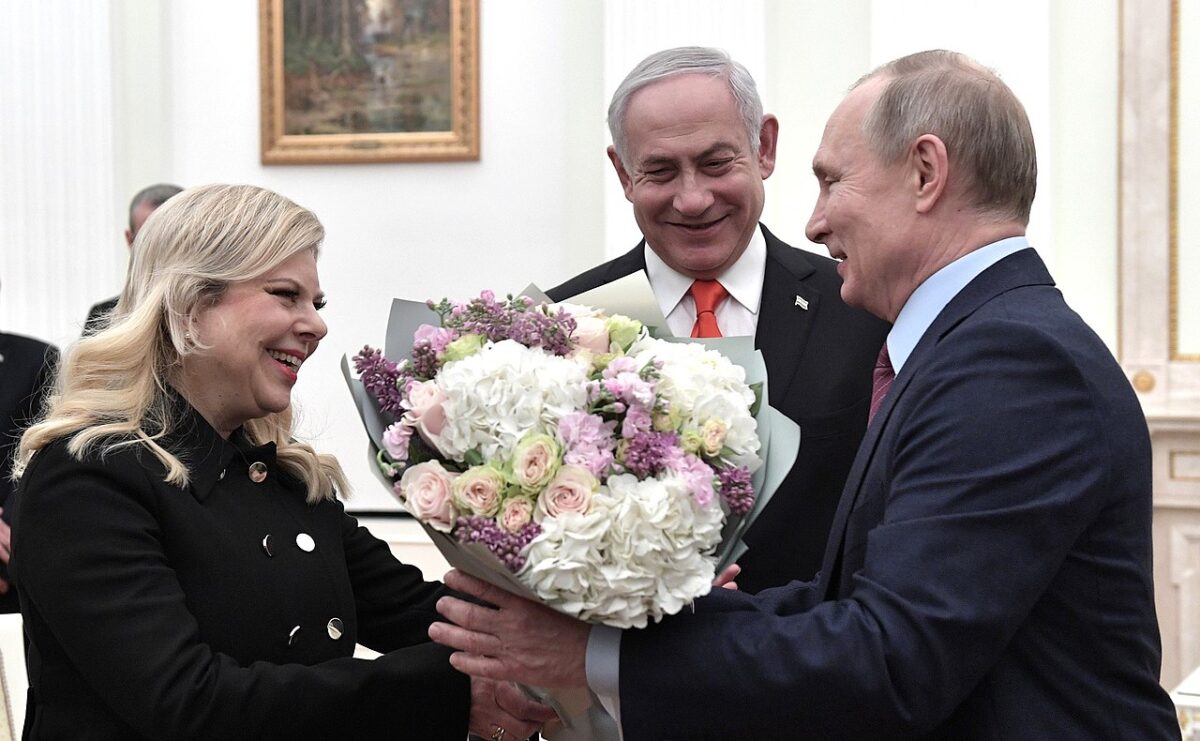Over the past decade, the Israeli government cultivated and nurtured cordial bilateral relations with Russia and China, two authoritarian states that have been at odds with the United States and the West in recent years, and that were hostile to Israel prior to the 1990s.
The Israeli prime minister, Benjamin Netanyahu, was the preeminent proponent of building friendships with Moscow and Beijing, while consolidating Israel’s strategic alliance with their rival, the United States.
Netanyahu visited Moscow almost a dozen times, conferring with Russian President Vladimir Putin, who himself paid two visits to Israel. And Netanyahu was due to visit Beijing later this month to shore up Israel’s budding commercial relationship with China.
Netanyahu’s policy seemed like a sound idea, given the enormous clout that Russia and China both wield in the Middle East and the potential markets they offer to Israeli exporters.
But nearly a month after the outbreak of Israel’s war with Hamas in the Gaza Strip, Netanyahu is probably feeling that his Russian and Chinese overtures may have been in vain. The reason is clear: Russia and China have tilted toward Hamas, graphically revealing the limits of Israel’s approach to these super powers.

In the most recent development, Russia’s ambassador to the United Nations, Vasily Nebenzya, spoke disparagingly of Israel’s right of self-defence. In light of its occupation of the West Bank, he said yesterday, Israel really has no right to defend itself.
Last week, an unnamed Israeli government official told Israel’s public broadcaster, Kan, that Russia’s “conduct and statements against Israel do not correspond to the seriousness of the situation Israel is in, which is a state of war.”
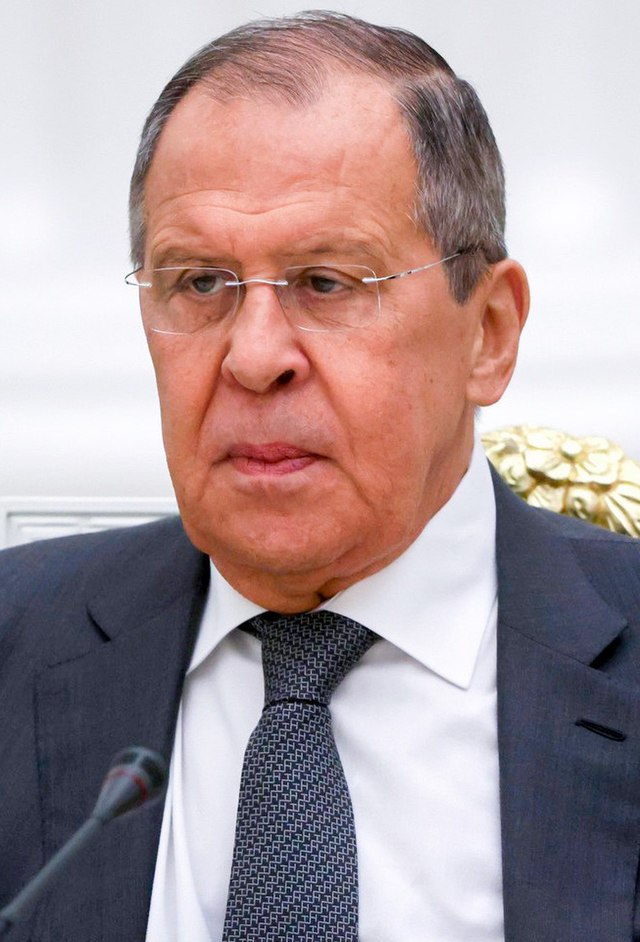
On the same day, Russian Foreign Minister Sergei Lavrov issued a communique in support of Iran, which assists Hamas militarily and politically and applauded its October 7 surprise terrorist attack in southern Israel which claimed the lives of 1,400 Israelis and foreigners.
On October 26, Russia’s deputy foreign minister, Mikhail Bogdanov, hosted delegations from Hamas and Iran led respectively by Musa Abu Marzouk, the director of its International Relations Office, and Ali Bagheri Kani, its deputy foreign minister.
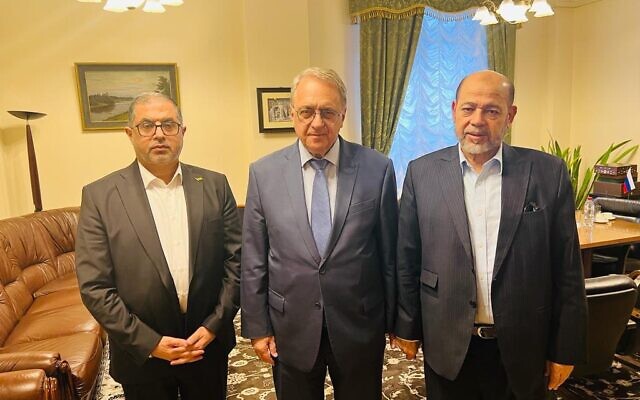
Bogdanov, the Russian special envoy to the Middle East, reportedly expressed Moscow’s support for the national rights of the Palestinians and endorsed efforts to achieve an immediate ceasefire and open humanitarian corridors to Gaza.
Marzouk stated that the goal of his trip was to stop “Zionist crimes supported by the United States and the West.”
Israel’s Foreign Ministry scolded Moscow for having issued an invitation to Hamas, which has been branded as a terrorist organization by many countries, but not Russia. “Israel sees the invitation to senior Hamas officials as an obscene step that gives support to terrorism and legitimizes the atrocities of Hamas terrorists.”
On October 29, the deputy director of the Israeli Foreign Ministry’s Euro-Asia division, Simona Halperin, summoned Russia’s ambassador in Tel Aviv, Anatoly Viktorov, to inform him that Israel takes a “serious view” of Russia’s refusal to condemn Hamas’ attack. She said that Russia has, in effect, sent “a message of legitimizing terror against Israelis.”
Since the eruption of the war, Russia has steadfastly refrained from condemning Hamas’ attack, compared Israel’s blockade of Gaza to Nazi Germany’s siege of Leningrad, and called for an immediate ceasefire, which would restore the unacceptable status quo ante in Gaza and thereby hand Hamas a victory.
Russia, too, has condemned Israeli air strikes in Syria as “unacceptable.” Syria, Israel’s bitter enemy but Russia’s chief ally in the Arab world, has allowed Iran to establish military bases on the Syrian side of the Golan Heights and even deeper inside its territory. Russia’s condemnation, voiced by Lavrov on October 31, claimed that Israel is aggravating current tensions in the region.
Netanyahu has sought to maintain friendly relations with Putin, if only to preserve the 2015 agreement with Russia that enables the Israeli Air Force to bomb Iranian bases in Syria and Hezbollah arms conveys en route to Lebanon without Russian interference.
The Israeli government should not be surprised by Russia’s pro-Hamas posture since October 7. Russia has formed strategic relations with Iran and has good ties with various Palestinian organizations and Hezbollah.
It should be added that Israel’s neutral policy with respect to Russia’s invasion of Ukraine has antagonized Putin and pushed him closer to Iran, Israel’s arch enemy and Hamas’ main backer.
It should be recalled that Soviet Russia was generally hostile to Israel from the 195os until the early 1990s, though the Soviet Union was the first nation to recognize Israel on a de jure basis.
China, Iran’s biggest trade partner, has disappointed Israel as well. China and Israel established diplomatic relations in the early 1990s after a long period during which China supported the “national liberation” struggle of the Palestinians.
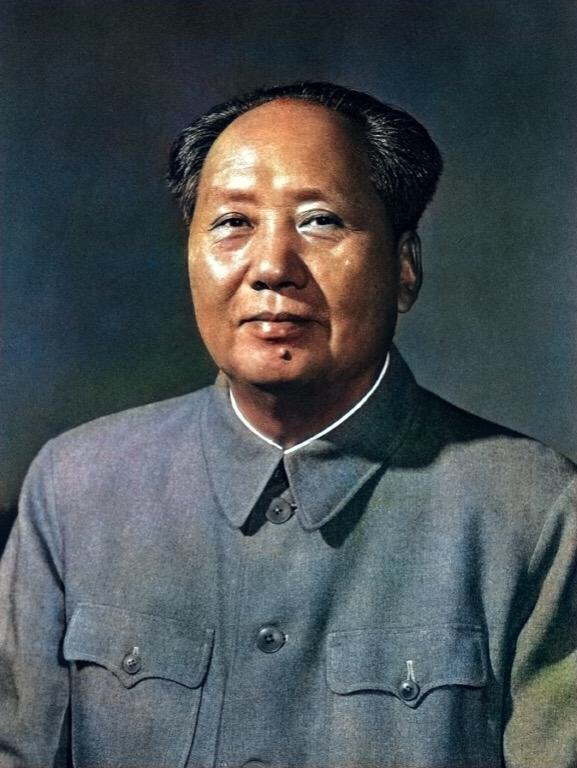
One of the founders of the Chinese Communist Party, Mao Zedong, compared Israel to Taiwan, depicting both as bases of Western imperialism. Of late, China has been cozying up to the Palestinians yet again, with President Xi Jinping stressing the need for Palestinian statehood.
In accordance with this outlook, Wang Yi, China’s foreign minister, has failed to condemn Hamas’ aggression. And while he acknowledged that “all countries have “the right to self-defence,” he claimed that Israel had gone “beyond the scope of self-defence” and characterized its current offensive in Gaza as “collective punishment.”
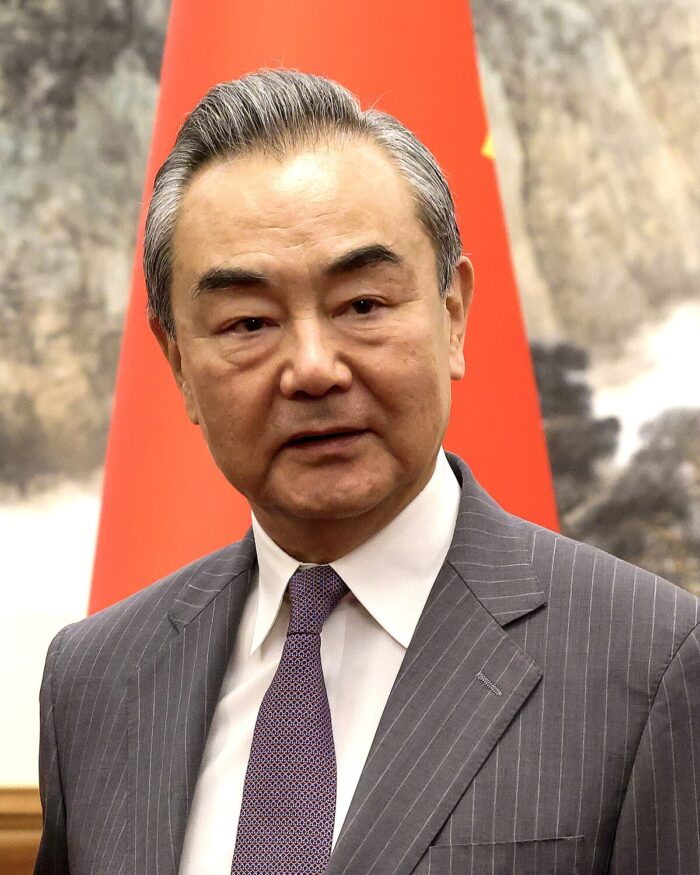
China, like Russia, vetoed a proposed U.S. resolution in the United Nations Security Council to condemn Hamas. China did call for the “early release” of Israeli and foreign hostages held by Hamas, but charged Israel with engaging in “indiscriminate and asymmetrical use of force.” And like Russia, China has been an advocate of an immediate truce.
Descending into antisemitic tropes, Chinese social media portrayed American Jews as disproportionately influencial and powerful and Israel as bloodthirsty.
The Israeli embassy in Beijing, in a post on X, castigated the Chinese government, criticizing it for not having labelled Hamas as a terrorist entity or condemned its brutal attack. “We trust that China supports Israel’s legitimate right to provide full security to its citizens and to defend its territorial integrity when unilaterally attacked.”
It appears that neither China nor Russia are fully prepared to abide by these parameters. Israel’s fifth war with Hamas in 15 years has upended Israel’s relations with both these countries.
